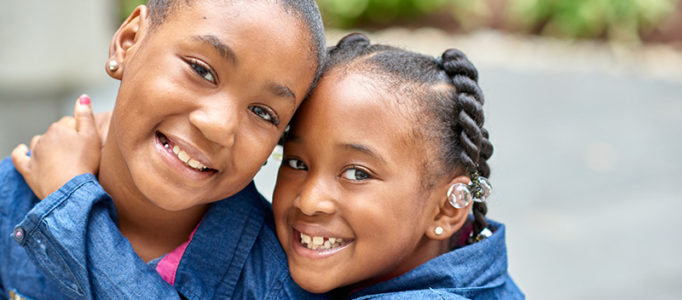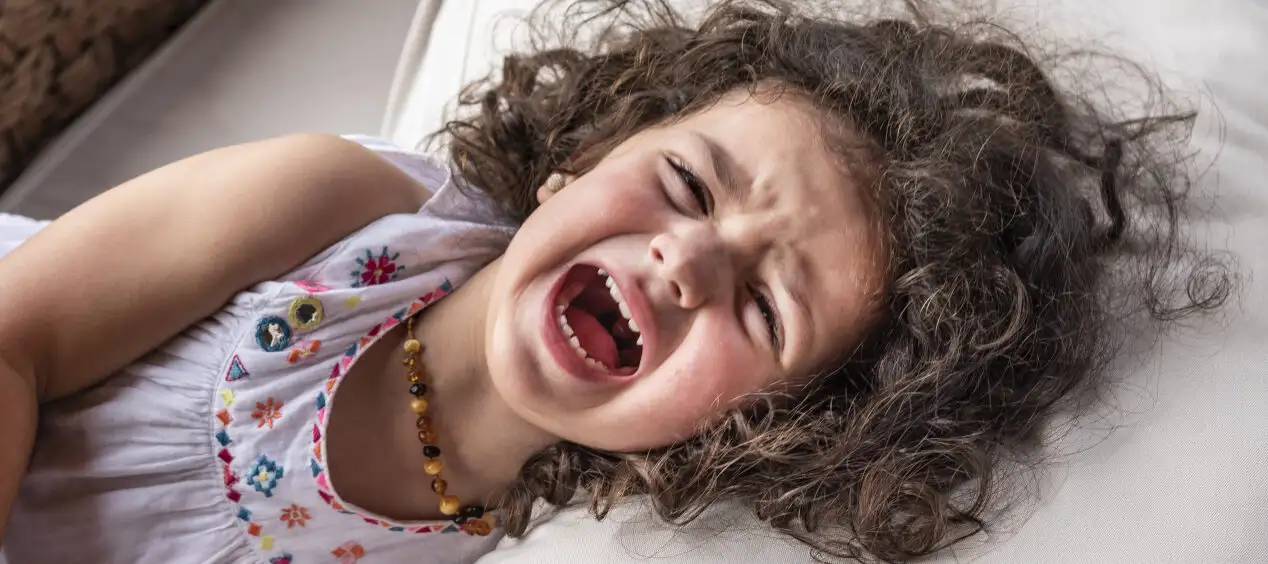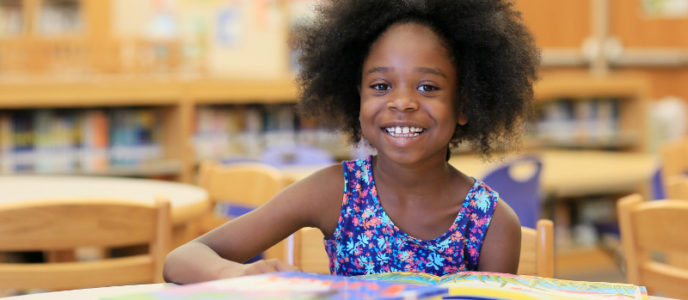Starting with my daughter’s 5-year well child visit, I could see she wasn’t a fan of getting shots. At that appointment, she ran out of the exam room in an attempt to avoid getting her 5-year immunizations. Over the years after that, we had clues along the way that she and needles did not mix (unsuccessful experience getting ears pierced, refusing Novocain at the dentist).
When she was 10, I took my three children to get their flu shots. I watched as my other two kids sat and received theirs with no problem. And then I dealt with my daughter, whose anxiety escalated so much over getting the shot that we eventually left the office without her receiving the vaccine.
It was bad. She crossed her arms in front of her and covered her upper arms so the nurse couldn’t even use the alcohol swab to clean off her arm. My normally sweet, mild-mannered girl was first fearful, then upset, and finally fully defiant. I went from being sympathetic and encouraging to being bewildered, annoyed, and even angry. Both of us were in tears at one point. She tried earnestly to calm herself down, but she just couldn’t do it.
Fear vs. Phobia
That was the day I distinguished fear from pure terror. I could see it in her eyes. She wasn’t resisting the shot to be difficult. She was absolutely terrified of the pain that it would cause, and she couldn’t get past that. It was after that appointment that I knew we needed help.
I spoke with our pediatrician first, calling this a fear of needles. I later changed my vocabulary to use the word phobia. Now I explain to people that my daughter has a severe needle phobia. I eventually decided to call the psychology department at Cincinnati Children’s. I discovered there’s a team of psychologists who specializes in these types of issues.
After our first appointment with the psychologist, I remember having hope. My daughter wasn’t the only one with this fear, and the psychologist had worked with other kids on this same thing.
Facing Her Fears
Therapy was a lot of work, both during our office visits as well as at home. Our appointments involved exposure therapy, where my daughter was exposed to a variety of elements related to needles that caused her anxiety. This type of evidence-based therapy provided through Behavioral Medicine and Clinical Psychology is officially called “graded exposure and response prevention.” We started first simply talking about getting a shot. Slowly other items were introduced that my daughter found increasingly anxiety-invoking. This included looking at photos of needles, holding a syringe, and watching a video of someone getting a shot.
Each week my daughter faced these fears and found that a) they were not as scary when she actually went through each exposure, and b) she was able to get through each one successfully. Along the way, she learned coping techniques and we found distraction tools that worked best for her.
Success!
After three months of hard work, I am thrilled to report that last month my daughter successfully got through receiving two of her required 11-year immunizations. It took a lot of coaching on my part and a really understanding nurse at our pediatrician’s office, along with a lot of hard work by my daughter herself mentally getting through it. She cried and it was still really difficult, but,
WE DID IT.
I felt like we had climbed Mount Everest that day. At one point on this journey, I feared that she wouldn’t be able to get through receiving a shot ever. So this was huge for us. I am incredibly proud of my daughter. It takes so much emotionally and mentally to face a fear like that and overcome it. And she did it.
‘We Have What It Takes’
I now feel strongly that the next time she is faced with a needle, we both have what it takes to get through it. We’ve kept notes from our experience that we’ll use in the future. And our psychologist told us we can always come back in for an additional visit if my daughter feels she needs a bit more help before facing her next needle challenge.
If you’re the parent of a child who is fearful of needles and you’re Googling “needle phobia” (which is exactly what I did), know that you’re not alone. Fear levels vary widely, and it’s possible you can help get your fearful child through getting a shot without going to therapy. Talk to your pediatrician first. Ours was willing to do whatever it took to help my daughter be successful. That included allowing her to bring gum, a stress toy, essential oils, music and slime into the exam room. I don’t think my daughter will ever look forward to getting a shot (who does?!), but now we know we can do it — thanks to a wonderful psychologist. And a whole lot of slime.
Editor’s Note: In August 2021, we caught up with the author of this blog post to see how her daughter has been doing with her fear of needles. Kate told us that receiving vaccines are still a challenge for her now 14-year-old. But she was very happy to report that her daughter received two vaccines this summer without any tears and much more quickly than she’s ever gotten a shot before. They are both extremely pleased with the progress that she’s made since that difficult 5-year well child visit.
To learn more about Cincinnati Children’s division of Behavioral Medicine and Clinical Psychology, or to schedule an appointment, please call 513-636-4336 or visit our website.







Thanks for your post! I too discovered today that my 7 year old son had needle phobia. We spent 2 hours in the CVS waiting for him to be ready and we got very close, but he still couldn’t do it. I think the phobia started with a tooth extraction that the dentist assured him “wouldn’t hurt much”, and now he doesn’t trust any adults’ assessment of how painful an experience is.
I understand where you’re coming from. It’s so hard for both the child and the parent. I hope that your son can find it in himself to one day again trust his healthcare providers, and can learn overcome his needle phobia. Best of luck to you!
My daughter is now 13yo. She has had this fear since age 2 when she had been dxed with leukemia. Over the years, through treatment, and now followup appts, she still fears the needle. Within the last two years, I was finally able to find out why she feared needles. It wasn’t the pain, it was the fear of cancer returning. Even though normally a very happy, well-mannered child; when a Drs appt approaches she gets anxious. The day of Drs appt, she resists, she yells, she tries to reason with the nurses…and she cries. Therapy has not helped..and she must have blood done at least 1x during the year (as she is in a Survivorship Program). If anyone has any suggestions, please let me know. Thank you in advance.
Poor thing. I can imagine that Is a big trigger to what she had to go through, and very understandably it caused panic. How is she doing now? Is she still working thru this fear? Update and a tip would be very appreciated.
If you or your child have a needle phobia, talk to a physician about a prescription for EMLA cream. It is a lidocaine/prilocaine topical cream that you apply directly to the site of the injection an hour before the shot and it numbs the pain almost entirely. Also, needle phobia is a serious anxiety disorder that prevents you from receiving important medical treatment. If you have this condition, talk to your doctor about a short prescription for a fast-acting anxiety medication such as lorazepam. It makes you feel like you couldn’t be nervous or panicked even if you tried, and it really helps for overcoming major phobias.
I used to reward my child with chocolate and treats so she would not be afraid anymore
I’m so glad that worked for you!
This is vary inspiring for me and my daughter. My daughter is 10 years old and has been struggling with this phobia for two years now. Last year when we went to get her flu shot when the nurse attempted to give her a shot she freaked out and ran around the room and despair she was crying and screaming and we tried to give her the shot she would slap and kick me and the nurse. A few days later we got a different nurse and she was able to do it no biggie, but when we attempted to get one this morning she had a very hard time getting the shot. She was screaming and crying and crossing your arms just like your daughter did, she kept touching her arms after the nurse would put The alcohol wipe on her arm. Today and last year we left that nurses office without her getting a shot. Thank you for the post and I sent this to my daughter and she started crying when she read it, but when she texted back she told me all about how she would love to try everything you and your daughter tried.
Jill, I completely understand what you’re going through. I am so glad that you found this helpful, and I hope that you and your daughter are able to find a way to help your daughter experience shots without as much anxiety in the future. My daughter is now 15 and, while she still doesn’t look forward to getting them, she does a MUCH better job of it these days. Maybe see if your pediatrician’s office has a supply of the FluMist this year for the flu vaccine, as an alternative to the shot for your daughter. I’ve been told they sometimes get a limited supply for use in special situations.
Thank you so much for sharing your story. My nine year old had a doctor’s appointment today and she was perfect until the doctor said that blood had to be drawn. That’s when everything went sideways. She started screaming and resisting with every fiber of her being. We eventually had to leave without getting it done. What is even more terrifying is that we are scheduled to travel from the Bahamas to the US in several days for my daughter to have an endoscopy. Financially this is a huge sacrifice but since she has had digestive abnormalities for about a year and a half, the procedure is necessary. She had been living with chronic nausea, stomach pain, loss of appetite and even some vomiting and diarrhea. She definitely seems to have a phobia of needles and I don’t want to travel oversees just to not have her be brave enough for the preliminary tests.
Thanks so much for your comment, Tina. I wish the best for you and your daughter and this upcoming procedure. I would suggest talking to your daughter’s healthcare team about her fear before any of the procedures begin, and building her up as much as possible with encouraging words from you. I hope it goes well for all of you!